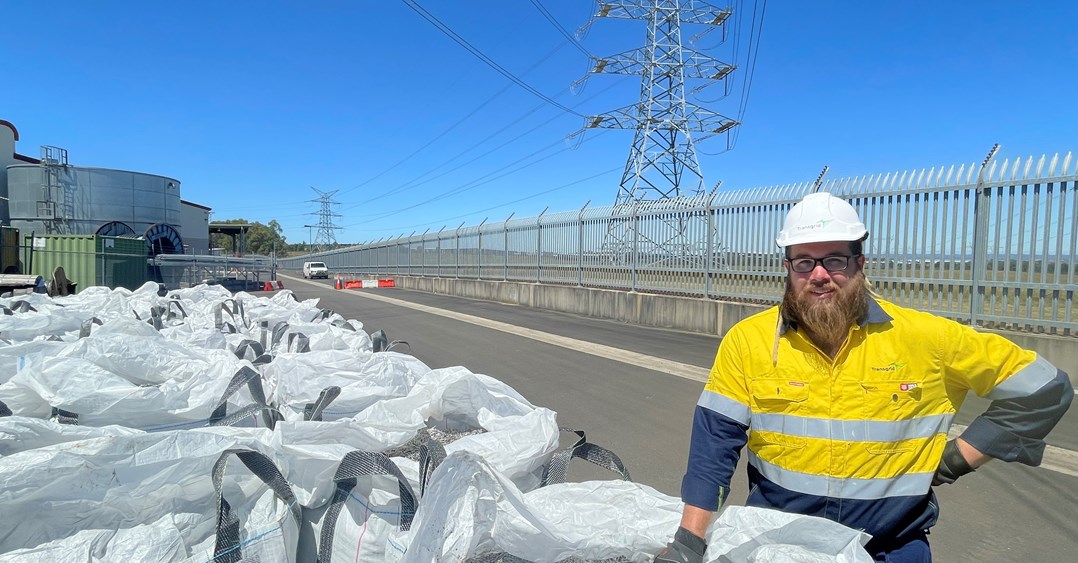New South Wales (NSW) and Australian Capital Territory (ACT) grid operator Transgrid has partnered with German manufacturing firm Zeck to utilise its ZECK AI/Steel Separator (ZAS), an innovative machine which enables the recycling of old transmission lines – providing significant cost and emissions reductions.
According to the network operator, prior to the adoption of the ZAS technology, used conductors needed to be shipped overseas for the removal of the outer aluminium layer for recycling. The ZAS machine can do this onsite, an innovation which Transgrid claims cuts 90% of the emissions involved in recycling conductors.
But not only that, Transgrid forecasts an improved return on its scrap metal recycling of up to $3 million (USD 2.06 million) over the next three to five years.
By feeding conductors into the ZAS machine under tension, the previously outsourced task of removing the outer aluminium layer is now performed on site and efficiently, with said aluminium cut into 30 to 70 mm pieces for easy smelting.
At the other end of the ZAS machine, the undamaged conductor’s steel core is wound onto a cable drum, it too ready for recycling.
It was one of Transgrid’s field coordinators, Mitch Coppock, who pitched the idea of using the ZAS machine. “Something like that hasn’t been done in Australia before,” said Coppock. “Anything innovative we can do is very important in our industry especially anything that can have good long-term effects on the environment.”
It’s an “everyone wins” situation, says Coppock, as Transgrid can get a return on its scrap metal three times higher than before, while “the environment wins with reduced emissions and local businesses benefit too as they get readily available and processed aluminium.”
The trial has already seen 40 km of conductors processed through the ZAS machine in Western Sydney, with each metre of conductor yielding approximately a kilogram of aluminium.
It has been a period of firsts for the network operator, which recently began trialling its first electric ute among a 400-strong diesel vehicle fleet.
This content is protected by copyright and may not be reused. If you want to cooperate with us and would like to reuse some of our content, please contact: editors@pv-magazine.com.









By submitting this form you agree to pv magazine using your data for the purposes of publishing your comment.
Your personal data will only be disclosed or otherwise transmitted to third parties for the purposes of spam filtering or if this is necessary for technical maintenance of the website. Any other transfer to third parties will not take place unless this is justified on the basis of applicable data protection regulations or if pv magazine is legally obliged to do so.
You may revoke this consent at any time with effect for the future, in which case your personal data will be deleted immediately. Otherwise, your data will be deleted if pv magazine has processed your request or the purpose of data storage is fulfilled.
Further information on data privacy can be found in our Data Protection Policy.